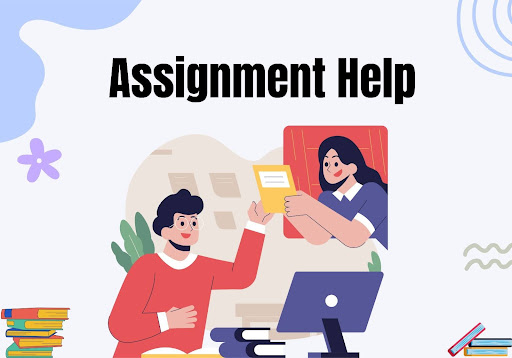Studying for exams can be overwhelming, particularly as time ticks by and nerves start to set in. Yet, through proper planning and a step-by-step strategy, students can turn exam week into a manageable—and even positive—experience. This book provides sensible tips and techniques, tailored for students aged 16 to 30 from across the UK. Whether preparing for GCSEs, A-levels, or university assessments, the guidance offered here is designed to bolster confidence, recall, and achievement. For additional support, especially when tackling complex subjects, seeking assignment help can be a smart addition to any revision strategy.
- Comprehending the Value of Exam Preparation
- Start Early and Prepare Ahead
- Use Active Learning Strategies
- Know Your Learning Style
- Prioritize More Challenging Topics First
- Make Use of Practice Exams
- Improve Your Study Area
- Make Digital Tools and Resources Work for You
- Stay Healthy During Exam Season
- Seek Assistance When Necessary
- Properly Manage Examination Stress
- Revise Frequently, Not Intensively
- Exam Day Tips
- Conclusion
Comprehending the Value of Exam Preparation
Before delving into techniques, it is critical to comprehend the significance of strategic preparation. Good exam preparation:
- Enhances retention of what has been learned
- Reduces test anxiety
- Enhances time management
- Enriches overall class performance
- A system also eliminates last-minute cramming and brings forth a richer comprehension.
Start Early and Prepare Ahead
Maybe the biggest student error is studying too close to the test. Preparing early enables greater comprehension and avoids data overload. Starting in advance also gives time to seek assignment help if certain topics prove difficult, ensuring a stronger understanding well before exam day.
- Make an Honest Study Schedule
- An individual study schedule is the key of smart exam preparation. This is how to create it:
- Evaluate all topics and subjects to figure out how much time each requires.
- Divide revision into manageable pieces.
- Schedule particular time blocks every day.
- Add breaks to avoid burnout.
- Electronic calendars or apps can be used to remain focused.
Use Active Learning Strategies
Reading passively will not work. Active learning activates the brain and reserves information.
- Greatest Active Learning Strategies:
- Flashcards: Best for memorizing facts and definitions.
- Mind Maps: Organize difficult subjects and how they are interconnected.
- Quizzing: Practice recall frequently in an attempt to spot weak spots.
- Summarising Notes: Restate important points in your own words.
- Teaching Others: To teach something, you first need to know it yourself.
Know Your Learning Style
We all learn in different ways. Knowing your learning style can change the way you revise.
- Visual Learners: Use diagrams, charts, and videos.
- Auditory Learners: Learn best by hearing—attempt listening to podcasts or reading out notes.
- Kinesthetic Learners: Learn through experience—apply movement or hands-on experience.
Prioritize More Challenging Topics First
Students will tend to focus on what they know and avoid more difficult subjects. Reverse this approach.
- Why Approach More Difficult Topics First?
- Gives more time to ask questions or seek assignment help.
- Gains confidence as the understanding gets better.
- Reduces anxiety closer to exam day.
Use the Pomodoro Technique—read for 25 minutes and break for 5 minutes—to break down challenging topics into manageable bites.
Make Use of Practice Exams
Advantages of Past Papers:
- Become familiar with question trends.
- Enhance your time management skills.
- Search for running themes or themes.
Time yourself to obtain maximum benefit from them. Mark in earnest or assignment help with comments to know where you went wrong.
Improve Your Study Area
Disorganized space will tend to dull focus. Learning space has a significant role to play in being effective.
- Quiet, well-lit room
- Comfortable, ergonomic chairs
- Minimum distractions nearby
- All study tools at fingertips (notebooks, writing material, water)
- Changing Sublocations at times can also excite enthusiasm.
Make Digital Tools and Resources Work for You
Technology can be a helpful friend while preparing for exams.
- Revision Tools: Like Quizlet, Evernote, or Notion.
- Time Management Tools: Forest, Pomofocus.
- Online Research Journals: JSTOR, Google Scholar.
- Video Sites: For visual learners who require subject walkthroughs.
Steer clear of social media distractions—switch off notifications or employ site blockers while studying.
Stay Healthy During Exam Season
Ignoring health can render all prep meaningless.
- Sleep Properly: 7–9 hours at night.
- Consume Brain-Boosting Foods: Such as berries, nuts, and greens.
- Drink Enough Water: Water enhances concentration.
- Exercise Regularly: Even short walks lower stress and enhance mood.
- A healthy body nourishes a sharp mind.
Seek Assistance When Necessary
No shame in asking for academic assistance.
- Tutors or academic coaches
- Study groups for group learning
- Online platforms providing guidance
- Assignment help services for guided assistance
- Prompt assistance can provide clarity and guidance, particularly when being stuck.
Properly Manage Examination Stress
Stress is unavoidable, but stress management is the key to achievement.
- Mindfulness or meditation classes
- Breathing exercises prior to study or examinations
- Systematic breaks to prevent exhaustion
- Self-talk and positive affirmations
- Stress management enhances concentration and maintains equilibrium.
Revise Frequently, Not Intensively
- Review material at increasing intervals.
- Strengthen long-term memory.
- Prevents forgetting curves.
Exam Day Tips
Last few hours are just as crucial.
- Prepare the night before (ID, pens, calculator).
- Have a healthy breakfast.
- Don’t cram at the end—it raises stress levels.
- During the Exam:
- Read slowly, questions.
- Manage time wisely per section.
- Relax—deep breathing clears focus.
- Preparation and opportunity meet test day.
Conclusion
Conquering tests isn’t happenstance—there exists a result of excellent planning, sharp revision, and continuous counseling. Using flashcards, simulated tests, or software programs, the key is persistence and steadiness. If lost or unclear for anyone who becomes so, agencies like Assignment in Need (assignnmentinneed.com) provide beneficial assignment information and structure to stay on track. With suppositions of right tactics, progression can occur and tests tackled bravely.






